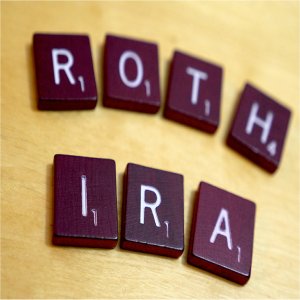Boost Your Retirement Funds with an Unknown Roth IRA Benefit

Who doesn’t want more income in retirement? Workers and near-retirees have been seeking methods to boost retirement income for many decades. Well, some believe they have now found it with a relatively unknown benefit in their Roth IRA.
Let’s face it, choosing a retirement savings strategy has never been a straightforward process. While some people choose to leave tax for another day and save with a Traditional IRA, others want to pay tax now so that they don’t have the burden in retirement. Often, the latter is achieved with a Roth IRA.
For those unaware, the idea is to pay tax early with a Roth IRA so that the IRS doesn’t swoop in during retirement and take a cut of what you’ve worked so hard to build. After gaining funds due to smart investments, many people don’t want to then lose this amount after leaving the world of work. With tax-free withdrawals in retirement, it’s perhaps not surprising that more and more people are choosing to save this way (not to mention the benefit of having no required minimum distributions!).
However, most people are aware of these benefits because they have been the same for many years. What fewer people know about the Roth IRA is the improved Social Security experience that comes with it.
Relationship Between Roth IRA and Social Security
You might be surprised to learn that your Roth IRA and Social Security affect one another. Although Social Security taxes are a federal implementation, they’re not applicable in every case. Your provisional income will actually determine whether or not your Social Security benefits are taxed.
What’s provisional income? Start with your annual income (without Social Security) and then add half of all Social Security benefits. Depending on your provisional income, this determines whether you’re taxed on 50% of all benefits. For single individuals, the bracket is between $25,000 and $34,000. Meanwhile, the bracket for married couples is between $32,000 and $44,000. If your provisional income is between these two amounts, you could be taxed on 50% of benefits.
What if your income is above these limits? Unfortunately, it’s about to get worse because you could get taxed on 85% of all benefits. Many people in retirement rely on Social Security to live, and this tax is unlikely to affect this group. On the other hand, those with multiple income sources are in the spotlight somewhat.
Thankfully, this is where a Roth IRA is effective. Although a lesser-known feature of Roth IRAs, distributions from these accounts aren’t considered in provisional income calculations. Even if you take $100,000 from your Roth IRA in one year, this won’t affect your Social Security income because it isn’t counted towards provisional income.
One of the potential problems you’ll encounter with a Roth IRA is the contribution limit/restriction for high earners. If you earn over $208,000 as a married couple or $140,000 as an individual, you won’t have access to Roth IRA contributions. Some people have found a way around this by contributing to a Traditional IRA and then converting to a Roth IRA later. Although you’ll need to pay tax on this rollover, you enjoy this neat Social Security tax trick (in addition to all the other benefits!).
Conclusion
After a lifetime of worrying about tax, the last thing you want is for these worries to continue in retirement. With a Roth IRA, you leave tax behind and instead enjoy a full retirement utilizing the savings made earlier in life!






